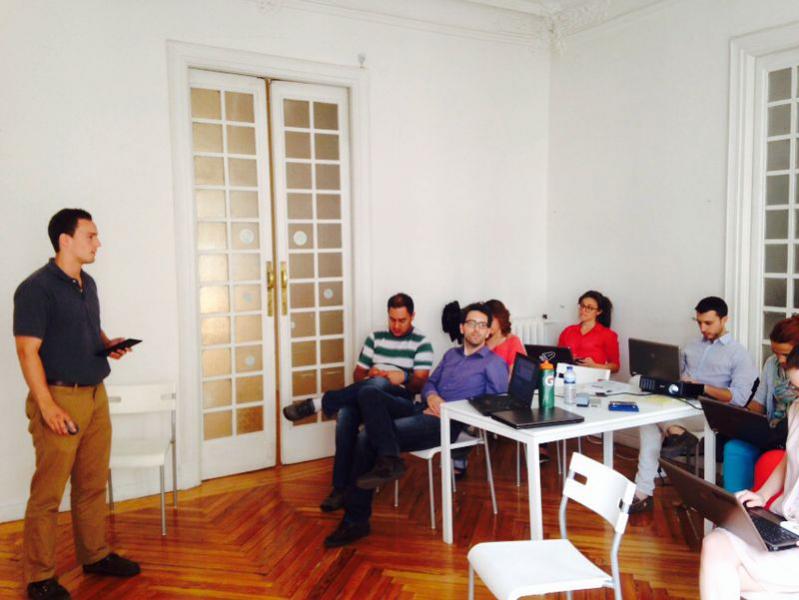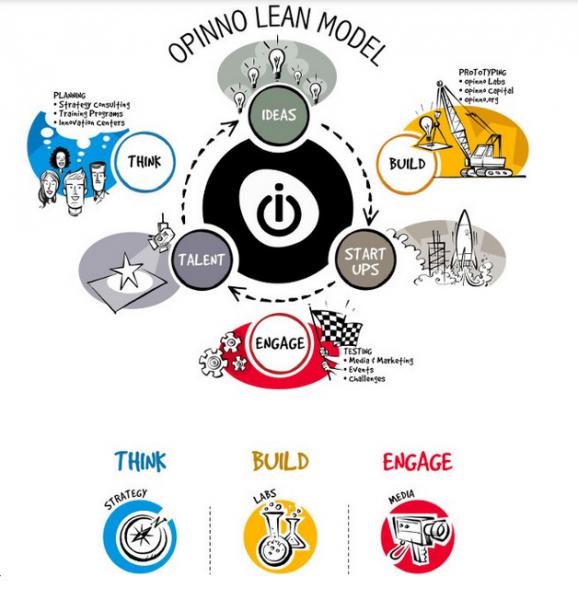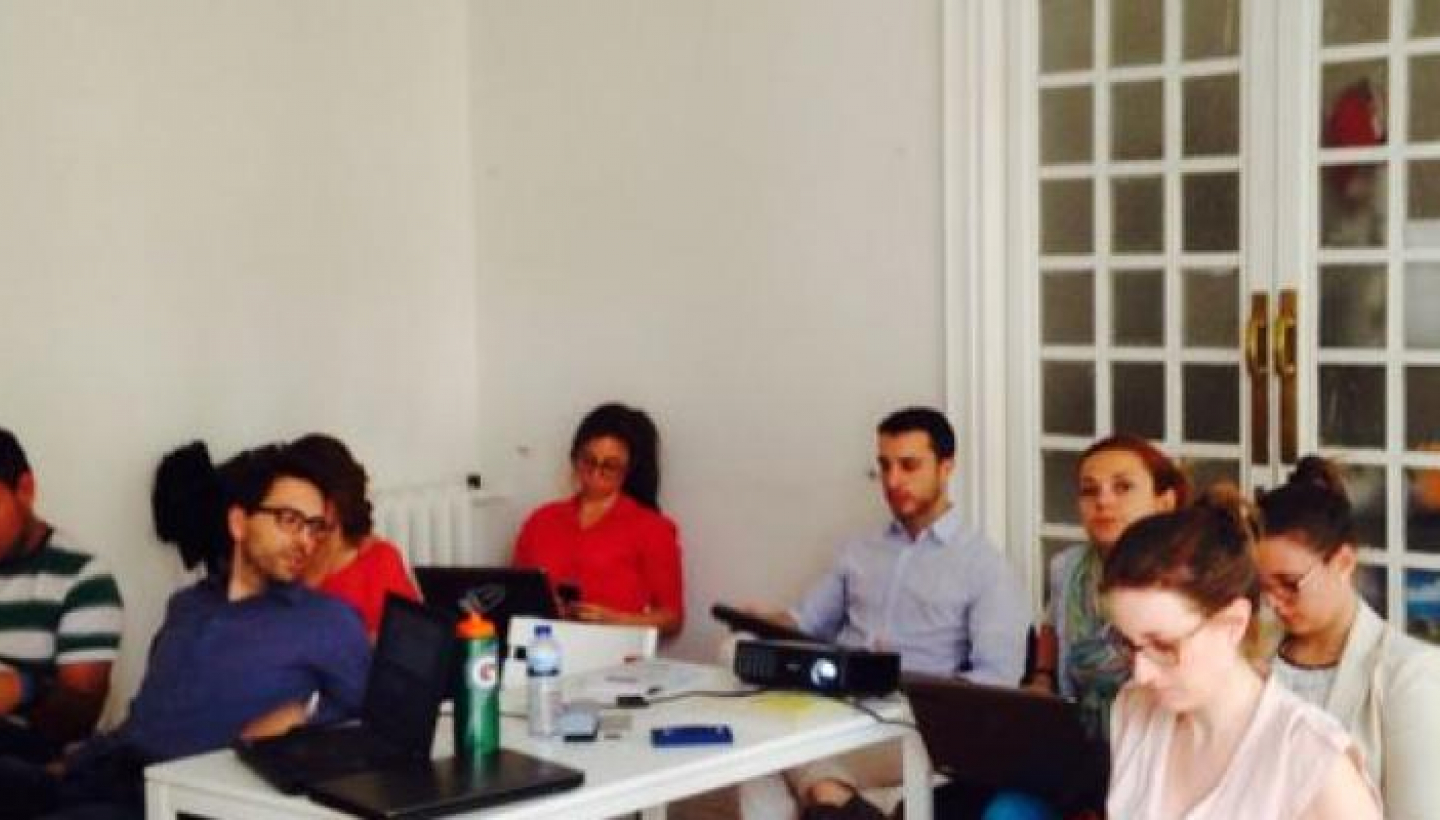
During a new training day at Opinno on the 6th of June, two members of the Think team, Irene Martín and Charlie Cox, were in charge of giving a class on new enterprising methodologies and their application in the aerospace sector.
The first person to present was Irene, who aimed her presentation at analyzing the latest trends in entrepreneurialism and applying them to the most up to date businesses of the moment; Start-ups. We’ve fully emerged ourselves in the Lean methodology world, taking charge of new business plans.
These methodologies are based on four large pillars; the famous ‘canvas’, processes like Lean Start-Up and Customer Development, the agile development of the product, and finally, the accountability of innovation.
“We have to take into account that it’s not about following the steps one after another; they are points that need developing together as if the process was a spinning top that keeps turning.”
The main advantage of the method developed by Steve Blank and improved by Eric Ries is that it allows more flexibility and movement within the business, so that they can keep readapting their product as well as their business model making it more complicated.
Also, it allows client participation during the entire creation process through Customer Development. Thus, if the business plan is finally made, it will have more chance of success having already been tested by real people with real problems.
This is, in essence, is the ultimate methodology that, in Opinno, we apply on a daily basis.

Charlie Cox, aerospace engineering student at Standford University, assured that a lot of these innovative methodologies are being currently applied in the development of space technology, such as SpaceX.
The main interest of private companies dedicated to the sector is lowing costs without losing quality, which is why they find the creation of fast prototypes such as the 3D printer so interesting, allowing the Lean premise “fast failure, cheap failure” to be followed.
With this aim, incredible systems have been developed, such as SpaceX Reusable Launch System, a space launcher that is able to redirect its orbit from space to return vertically to Earth. There have also been advances in the satellite field, making them smaller and cheaper.
On the other hand, you have to take into account that space tourism will give many private companies the opportunity to amplify their businesses like Virgin, for example. All of them are currently developing safe space ship prototypes at low cost; advances that will translate in an improvement in space technology around the world.
Finally, Charlie assured that new aerospace companies are supporting young enthusiasts, carrying out low cost design, rocket launch courses, workshops and creating scientific globes with GPS which he has been a part of and assures that they “save money, time and effort”. This is another example of Lean methodologies working effectively in this type of business.



